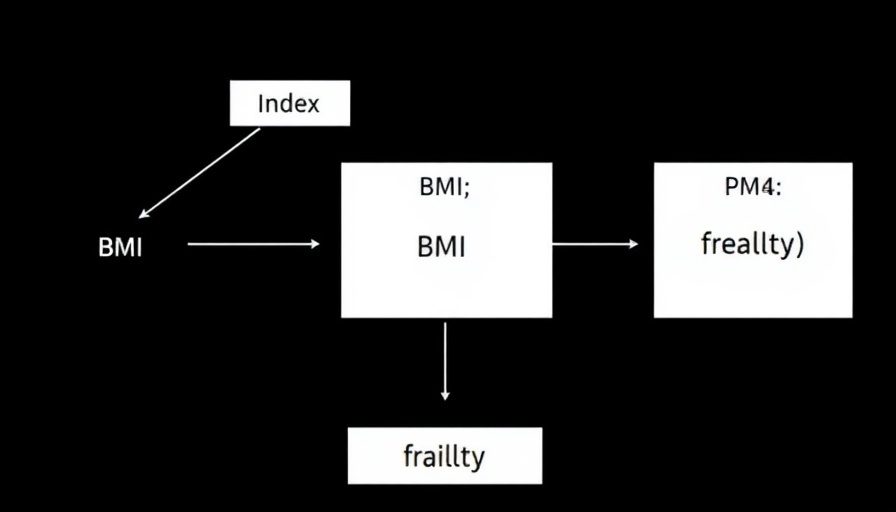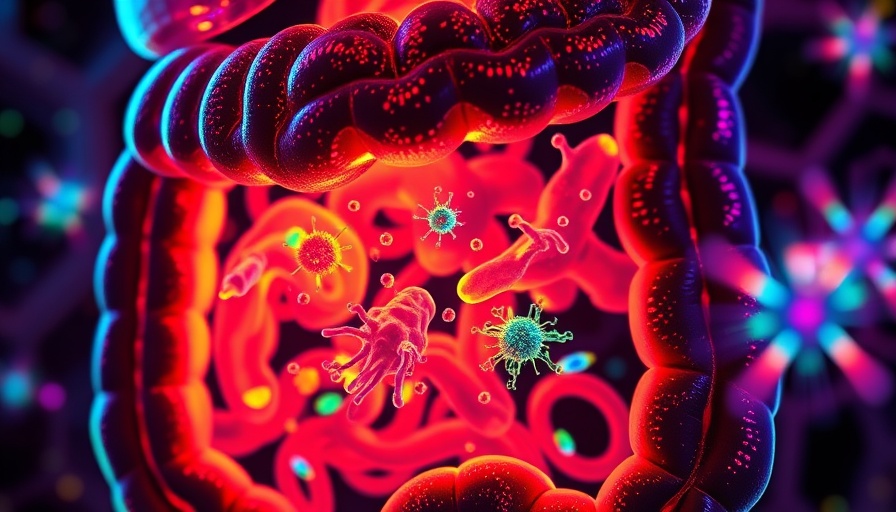
Understanding the Connection between Gut Microbiota and Frailty
As we delve into the intricate relationship between diet and health, one striking insight emerges: the Dietary Index for Gut Microbiota (DI-GM) potentially holds the key to understanding frailty in adults, especially as they age. Frailty, characterized by reduced physiological reserves, significantly impacts older individuals' quality of life, mobility, and health outcomes. Recent research, examining extensive data collected from the National Health and Nutrition Examination Survey (NHANES), provides new evidence that supports this connection.
The Power of Dietary Choices on Health
The findings reveal that higher DI-GM scores—reflecting greater gut microbiota diversity—are linked to a reduced prevalence of frailty. This is particularly important for health-conscious individuals aged 30-55, as early interventions in diet can play a crucial role in preserving vitality and promoting longevity. With many now seeking science-backed insights on how diet influences aging, dietary choices such as incorporating fibers, probiotics, and essential fatty acids can be particularly beneficial.
Insights from the Study
A comprehensive analysis encompassing over 25,000 individuals established clear connections between gut microbiota, body mass index (BMI), and frailty. Results demonstrated that a balanced diet, rich in components that benefit gut health, not only improved DI-GM scores but also mitigated the risk of frailty, accounting for 17.57% of the association through BMI mediation. This finding emphasizes that maintaining a healthy weight is imperative for promoting overall wellness.
A Non-linear Relationship: Why It Matters
Interestingly, the relationship between DI-GM and frailty appears to be non-linear. This nuance suggests that while increasing dietary diversity positively impacts health, a threshold may exist beyond which additional diet diversity may not yield further benefits. Understanding this aspect can empower readers to optimize their diets more effectively, improving not only their gut health but also their overall life quality.
Practical Steps for Health Enthusiasts
For those passionate about enhancing their vitality through diet, incorporating foods known to boost gut health can make a difference. Consider integrating more Omega-3 rich foods, adaptogens for health, and anti-aging supplements like CoQ10 and resveratrol into your routine. These can support cellular rejuvenation and contribute to longevity, potentially delaying age-related declines in health.
Navigating Supplements: A Guide for Longevity
The market is rife with options for supplements aimed at longevity. Before diving into the world of NAD+ supplements, collagen for aging, or longevity vitamins, it's essential to base choices on personal health needs and circumstances. Consulting healthcare professionals can provide guidance tailored to individual nutritional requirements.
Final Thoughts: A Call to Embrace Nutrition
The research revealing the interplay between DI-GM and frailty invites us to reexamine our dietary habits. By taking a proactive approach to nutrition, individuals can improve not just their gut microbiota diversity but also enrich their lives, enhancing their overall health and resilience against frailty. Start today; consider evaluating your current diet and finding ways to incorporate enriching foods and effective supplements that support your longevity journey.
 Add Row
Add Row  Add
Add 




Write A Comment